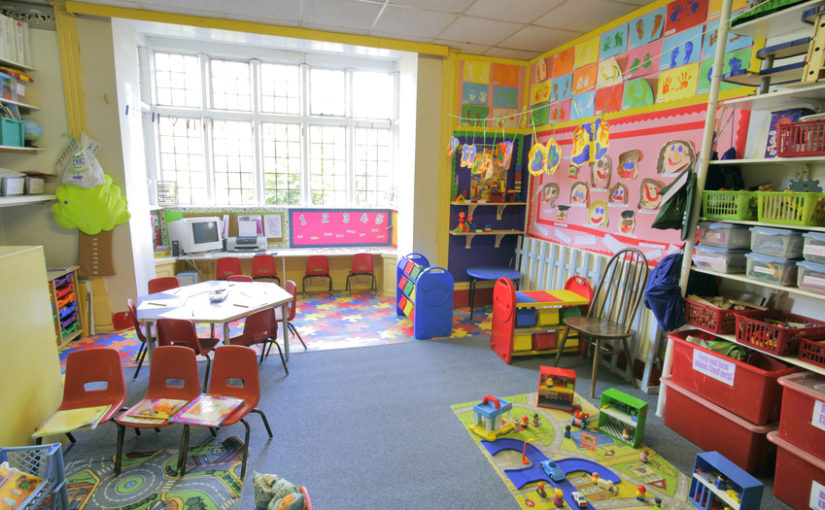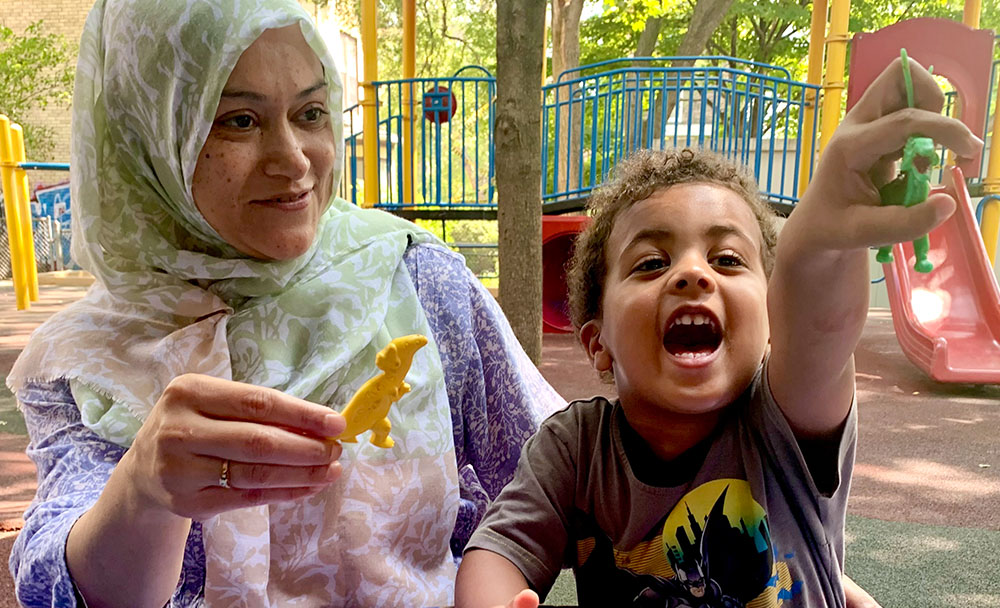The Function of Childcare in Cultivating Your Toddler's Cognitive and psychological Abilities Through Organized Play and Educational Activities
The duty of childcare in supporting a young child's cognitive and psychological growth is frequently undervalued, yet it offers as a critical atmosphere for organized play and instructional activities. With carefully developed communications and experiences, caregivers assist in essential skills such as emotional understanding and analytical.
Importance of Structured Play
Structured play is an important component of young child growth, as it supplies a framework via which kids can participate in meaningful communications and discovering experiences. This sort of play is purposefully developed to foster numerous developing skills, such as cognitive, social, and physical capabilities. By joining organized activities, toddlers find out to follow policies, take turns, and cooperate with peers, every one of which are vital for their social abilities.

Furthermore, structured play frequently incorporates educational aspects, such as counting, color acknowledgment, and language advancement, perfectly incorporating discovering into enjoyable activities. This approach not just catches toddlers' attention but additionally reinforces vital principles in a pleasurable manner. Overall, structured play is crucial in promoting a well balanced development, equipping young children with the foundational abilities required for future understanding and social communications.
Emotional Growth in Daycare
Childcare atmospheres play an important role in cultivating psychological advancement in toddlers. These setups give kids with opportunities to connect with caregivers and peers, promoting the advancement of important social-emotional skills. Through routine communications, young children learn to recognize and reveal their feelings, such as despair, disappointment, or joy, which is crucial for their psychological maturity.

Moreover, the structured environment of daycare enables children to experience a range of emotions in a risk-free space. When transitioning from home to daycare and create resilience as they navigate new partnerships and experiences, they learn to take care of feelings of separation stress and anxiety. On the whole, the psychological development fostered in day care not just advantages kids during their formative years but also prepares for healthy and balanced social relationships and psychological health throughout their lives.
Cognitive Abilities Through Activities
With participating in a selection of tasks, toddlers in childcare setups can dramatically improve their cognitive abilities. Structured play and educational tasks are important in advertising cognitive development, as they give opportunities for exploration, analytical, and important thinking. Tasks such as puzzles, structure blocks, and memory video games challenge kids to believe artistically and logically, promoting crucial skills like spatial understanding this post and pattern acknowledgment.
Moreover, interactive storytime sessions encourage language advancement and understanding. By paying attention to tales, young children discover to refine details and involve their creative imaginations, which boosts their narrative abilities and vocabulary. Additionally, hands-on activities involving arts and crafts boost great electric motor abilities while additionally urging self-expression and creativity.
Sensory play, such as sand or water activities, allows toddlers to try out different textures and products, advertising inquiry-based discovering. These experiences not only enhance cognitive capacities yet likewise impart a sense of interest about the world around them - toddler daycare near me. Generally, the varied variety of cognitive activities provided in childcare environments plays a pivotal role fit a kid's capacity to believe critically, address issues, and engage meaningfully with their environments
Social Links and Interaction
In a caring atmosphere, kids normally build social links and take part in interactions that are essential for their emotional and social growth. Daycare settings give a special opportunity for kids to interact with peers, promoting vital social abilities such as sharing, collaboration, and problem resolution. These interactions aid young children learn to navigate their emotions and comprehend the perspectives of others, which are important components of psychological intelligence.
With structured play and team tasks, kids are motivated to communicate their ideas and feelings, improving their spoken abilities and advertising compassion. Engaging with peers additionally introduces them to diverse social norms and habits, enhancing their understanding of social dynamics. Consistent interaction with various other kids helps to develop a sense of area, giving an assistance system that is beneficial for emotional development.
As kids participate in collaborative jobs, they find out the relevance of synergy, perseverance, and settlement. These foundational social abilities are crucial as they plan for future partnerships, both in instructional setups and beyond. Ultimately, the social connections created in childcare play a considerable function fit a toddler's capacity to communicate positively and effectively with others throughout their lives.
Duty of Caregivers in Growth

Caretakers play a crucial role in fostering toddler development, especially in the context of the social communications they experience in daycare settings. These experts supply a nurturing environment where toddlers can explore their emotions and cognitive capabilities with structured play and academic tasks. By taking part in meaningful conversations, caretakers sustain language growth and enhance social abilities.
Moreover, caregivers model appropriate habits and psychological my site actions, helping toddlers discover compassion and conflict resolution. Their existence additionally creates a feeling of protection, which is important for kids to with confidence explore their surroundings and engage with peers.
Along with social and emotional support, caregivers contribute in implementing educational curricula that advertise cognitive growth - toddler daycare near me. They present age-appropriate activities that boost interest, important thinking, and problem-solving skills. This organized technique makes sure that kids not only enjoy their play yet likewise gain fundamental understanding important for future learning
Inevitably, the high quality of caregiver communications significantly affects a toddler's total growth. By cultivating a helpful and engaging environment, caregivers aid prepare for healthy and balanced emotional and cognitive development, furnishing children with essential abilities for their lifelong trip.
Final Thought
To conclude, daycare functions as an important setting for fostering cognitive and emotional growth in young children. Through structured play and , kids experience considerable development in their ability to acknowledge and share emotions, establish crucial assuming skills, and form necessary social connections. The function of caretakers is instrumental in assisting in these experiences, making certain that each child take advantage of a nurturing ambience that promotes lifelong psychological health and cognitive development.
The function of day care in nurturing a young child's psychological and cognitive development is typically taken too lightly, yet it serves as a crucial atmosphere for organized play and academic activities. In general, structured play is important in promoting a balanced growth, equipping kids with the fundamental skills required for future knowing and social interactions.
Daycare settings play a vital role in cultivating psychological development in toddlers. On the useful link whole, the psychological development cultivated in day care not only benefits toddlers throughout their formative years but additionally lays the foundation for healthy interpersonal partnerships and psychological health throughout their lives.
With structured play and group activities, young children are encouraged to connect their feelings and thoughts, improving their verbal abilities and promoting compassion.
Comments on “Your Ultimate Resource for Baby Daycare Near Me: Tips for Choosing the Best”